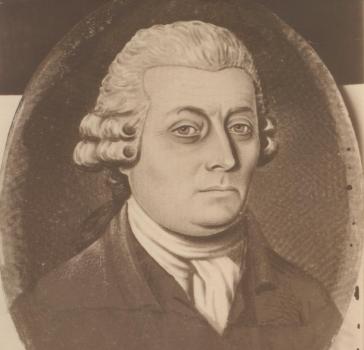Extract of a letter from Peter Le Mesurier, Governor of the Island of Alderney, to the Right Hon. Henry Dundas, one of his Majesty's principal Secretaries of State, dated Alderney, the 25th of December 1797. From The European Magazine and London Review, Vol. 33.
Double your cricket numbers with England's finest (or second finest) at the Fort Ground. The newspaper notes: 'Although the Twenty-two are said to be of the Channel Islands, three only are natives, the remainder being officers of the garrison or other temporary English residents.' From the Star, March 31st, 1866.
In view of the recent spectacular controlled detonation of a WWII bomb off Guernsey, here is a rather less controlled episode from 1952, in which the 28 inhabitants of Herm were incredibly lucky to escape injury or worse. 'Will you tell your husband when you go ashore that there is a mine somewhere off the Herm coast. Tell him to try and get a rope round it and pull it in; it will be quite harmless. It's been in the sea since the war and the firing mechanism will be rusted up.' Insurance did not cover damage by rogue mine, but the States stepped in to do the repairs, which were considerable.
As reported in the Comet of July 4th, 1836. Henry Trengrouse (1772-1854), from Cornwall, was the inventor in 1808 of an early form of the Breeches buoy. As he first presented his invention, however, in 1818, versions of it had long been in use by the time he demonstrated it in Guernsey, despite the Comet's misgivings.
Necessity demanded that a gang of Alderney smugglers kidnap a French customs officer on the French coast and take him back to Alderney, then leave him to make his own way home. The authorities in Alderney smiled indulgently on the miscreants, but French Ambassador Count Sebastiani made angry representations to the UK Government for action. The Comet is indignant, pointing out that the French are quite happy for their nationals to smuggle gin to England.
The philanthropic Reverend Mignot and his Plateau, from the Guernsey Evening Press of June 13, 1932.
An extremely interesting account from the enemy—at this point the Americans—of their view of Guernsey and its defences in 1778.
From the Star, June 7 1900. Sent from Wynburg, Orange Free State, and dated May 5, 1900. The author of this and other letters was Roland W. Mourant, of the City Imperial Volunteers (C.I.V.). He was son of James Mourant, of Gloucester House, High Street, a funeral director.
From The Star, July 5th, 1900. Reprinted from the Daily Mail of June 29th, 1900. Training the militia and their expertise at rifle-shooting.
Two letters by merchant and functionary Havilland Le Mesurier, one to his wife Elizabeth Dobree and the other to daughter Harriet Le Mesurier, from nearly 200 written while he was away working for the Army's Commissariat, in the Library collection.
John Banister of Virginia describes the Boston Tea Party and the growing disaffection between Britain and New England, including the Battles of Lexington and Concord, to update his business associate, shipping magnate Elisha Tupper. The illustration, from the Priaulx Library collection, is of a miniature of Elisha (1720-1802), in the background of which a date, possibly 1785, is just discernible. The photograph was taken by or on behalf of Edith Carey, c. 1920.
A cruel pastime is banned.

